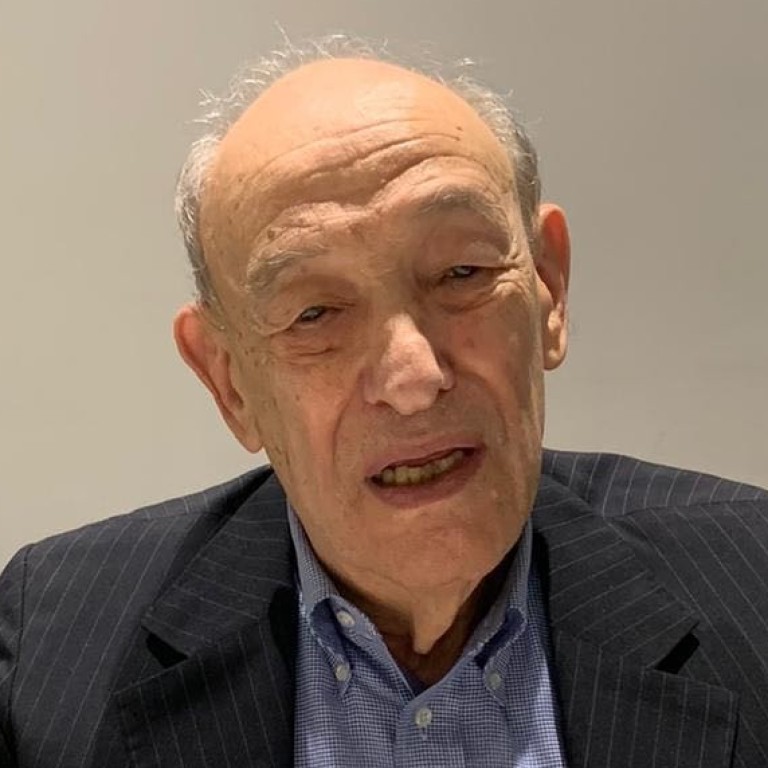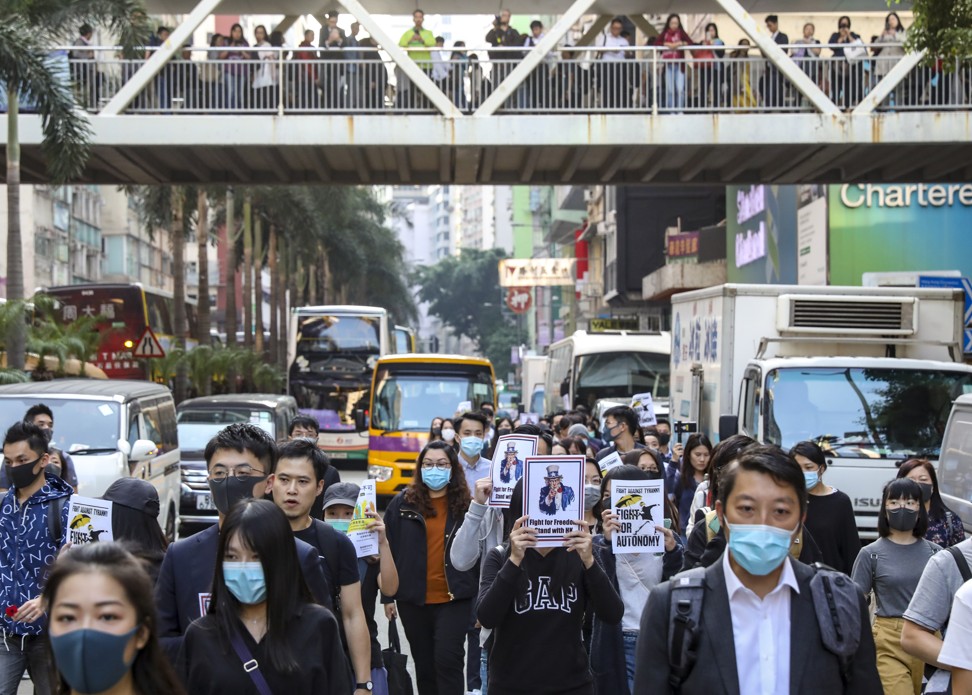
No ‘Washington consensus’ on tough China policies says US academic Ezra Vogel
- Harvard scholar detects a softening of tone since ‘China is not an Enemy’ letter to US President Donald Trump
- Identifies Taiwan as most dangerous issue in US-Chinese relations
There is no “Washington consensus” to play tough on China, according to Ezra Vogel, a renowned US scholar on China and Japan, and one of the 100 academics, diplomats, businesspeople and military experts who called on President Donald Trump earlier this year to review his China policies.
“The letter I have signed with 100 people, who are all very prominent, shows there is no Washington consensus about being tough on China,” Vogel said in an interview with the South China Morning Post in Hong Kong on Sunday.
“There are a lot of Democrats complaining about China too. But to say that is a Washington consensus is too strong.”
Although remarks from the two drew fire from Beijing, Vogel said their tone was softer than before.
“I don’t think they used that kind of tone before our article appeared. Even though they want to be tough, they recognise that there are so many problems. You have to work with China.”
Stop trade war and work with allies to counter China, says US think tank
Vogel said the prospect for the two countries to sign “phase one” of the trade deal was promising, but the step remained too small to indicate any major shift in Trump’s handling of China.
Decoupling of the two economies was also “unrealistic”, he said. “The skills of businessmen to find ways to do things is so great. Our government may mess up and complicate the relations, but decoupling is not realistic.”
Compared with the trade war, Vogel said the Taiwan issue posed a bigger risk to bilateral relations as military conflicts were not impossible if Beijing calculated the US would not defend Taiwan if it invaded, though he said such a scenario had not appeared yet.
“The most dangerous issue in America-China relations will probably be the Taiwan issue. If China feels Taiwan is going too much the wrong way, if they feel peaceful ways cannot deploy enough pressure and the power of the United States is growing weaker, they may find a chance to invade.”
But Vogel said he believed Chinese President Xi Jinping was more concerned about domestic problems – such as stability and the economic slowdown – than foreign relations.
On the continuing unrest in Hong Kong, Vogel – author of the award winning book Deng Xiaoping and the Transformation of China – said “one country, two systems” had been the best solution for the city during Deng’s time, but that Beijing had been insensitive to the mood in Hong Kong in the years after Deng.

Vogel said Beijing’s leaders might be concerned that appearing too soft on Hong Kong would encourage people on the mainland to express themselves forcefully, although they were also concerned about the reactions of other countries and Taiwan.
“If I were the mainland leaders I would be worried about how to balance all these … I would make some adjustments to take the wind out of the sails of the Hong Kong movement. I would try to find some ways, such as public housing or some other steps, that would give some encouragement to the Hong Kong students without being seen as giving in too much,” he said.
In a broader context, Vogel also warned that China should be cautious against the rise of “extreme patriotism” and using foreign countries as “scapegoats” in times of serious domestic problems. He said China should learn from the history of China and Japan during World War II, as documented in his latest book China and Japan: Facing History.
“One lesson that I hope the Chinese will learn from the Japanese [is in] my explanation of why there was World War II and why the Japanese attacked. It was not that the Japanese had a well integrated and well organised plan over the years to attack. In the earlier years, patriotism was so strong and there were a lot of right-wing Japanese who were extremists …
“There are some lessons the Chinese can learn. If you have super patriotism and they get so out of control that sometimes you are not able to control your own soldiers and army, that would be disastrous,” Vogel said.

